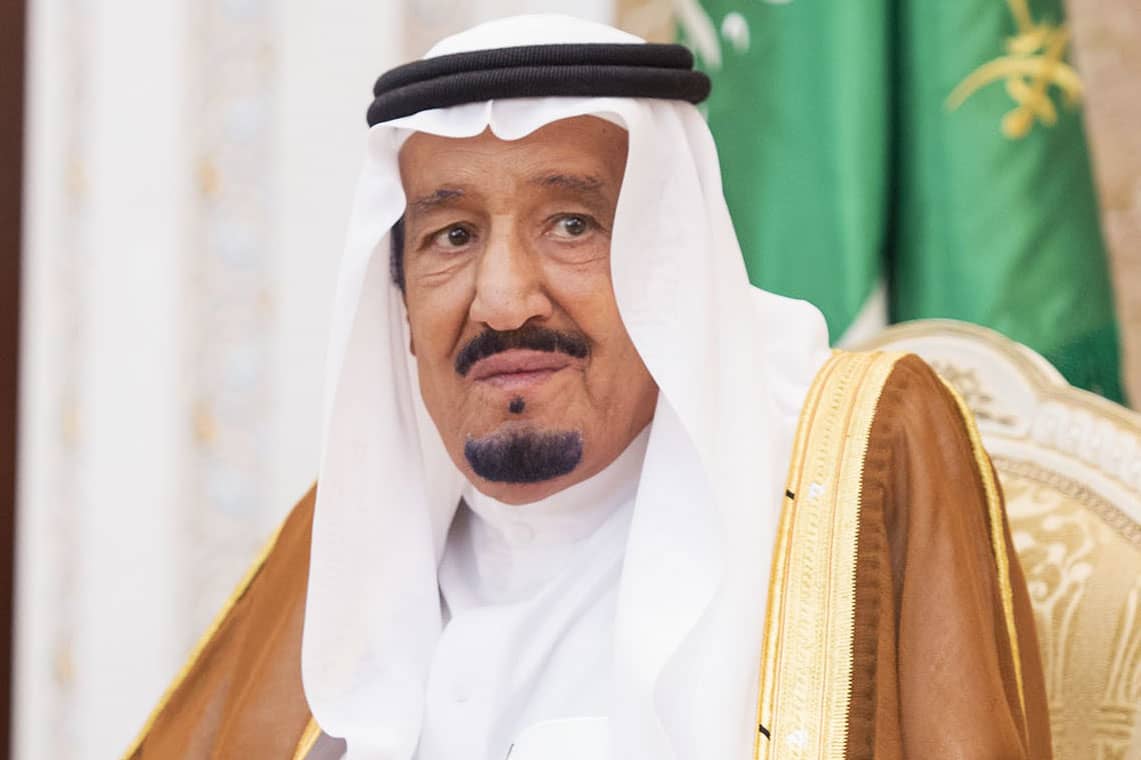
Salman bin Abdulaziz Al Saud, King of Saudi Arabia
Bandar Algaloud | Saudi Royal Council | Handout | Anadolu Agency | Getty Images
President Joe Biden held his first call with Saudi King Salman on Thursday, emphasizing human rights and diplomatic efforts to end the war in Yemen as the White House scrutinizes relations with the oil-rich kingdom.
Biden noted the recent release women’s rights activist Loujain al-Hathloul and several Saudi-American activists from prison and “affirmed the importance the United States places on universal human rights and the rule of law,” according to a readout of the conversation released by the White House.
Biden’s discussion with Salman comes as Washington and Riyadh prepare for the release of a U.S. intelligence assessment that will reportedly implicate the king’s son Saudi Crown Prince Mohammed bin Salman in the brutal killing of journalist Jamal Khashoggi.
Khashoggi, a U.S. resident and Washington Post columnist, was killed in the Saudi consulate in Istanbul in October 2018 and his body was dismembered. Riyadh initially denied any involvement in the killing but later blamed Khashoggi’s death on a rogue operation.
Secretary of State Antony Blinken also held a phone call with Saudi Foreign Minister Faisal bin Farhan Al Saudi on Thursday, in which he emphasized the importance of Saudi progress on human rights.
The Biden administration’s decision to release the intelligence assessment on who is responsible for Khashoggi’s killing, which the Trump administration declined to do, signals a shift in U.S.-Saudi relations.
The White House has already downgraded relations with 35-year-old bin Salman, who has been the public face of the Saudi kingdom since becoming crown prince in 2017. The administration has made clear that Biden views the ageing King Salman as his counterpart and will conduct relations through him.
Bin Salman enjoyed high level access to U.S. officials during the Trump administration through his personal ties with members of President Donald Trump’s family, particularly Jared Kushner.
The White House is conducting a broad review of the U.S. relationship with Saudi Arabia, which is traditionally close but has come under heightened congressional and international scrutiny in the wake of Khashoggi’s killing and the humanitarian crisis caused by the war in Yemen.
Biden, in his first foreign policy address, announced the end of U.S. support for the Saudi-led war in Yemen, which includes halting relevant arms sales. He has also sought to bring Iran, Saudi Arabia’s biggest adversary in the Middle East, back to the negotiating table over its nuclear program.
Biden also discussed the “U.S. commitment to help Saudi Arabia defend its territory as it faces attacks from Iranian-aligned groups.” Houthi rebels in Yemen have launched rocket attacks against Saudi Arabia. Washington and Riyadh accuse Iran of backing the Houthis.
Saudi Arabia was forced to shutdown half its oil production in September 2019 after a series of drone attacks on its crude facilities. The Houthis claimed responsibility for those attacks. Riyadh blamed Iran, which denied any involvement.




